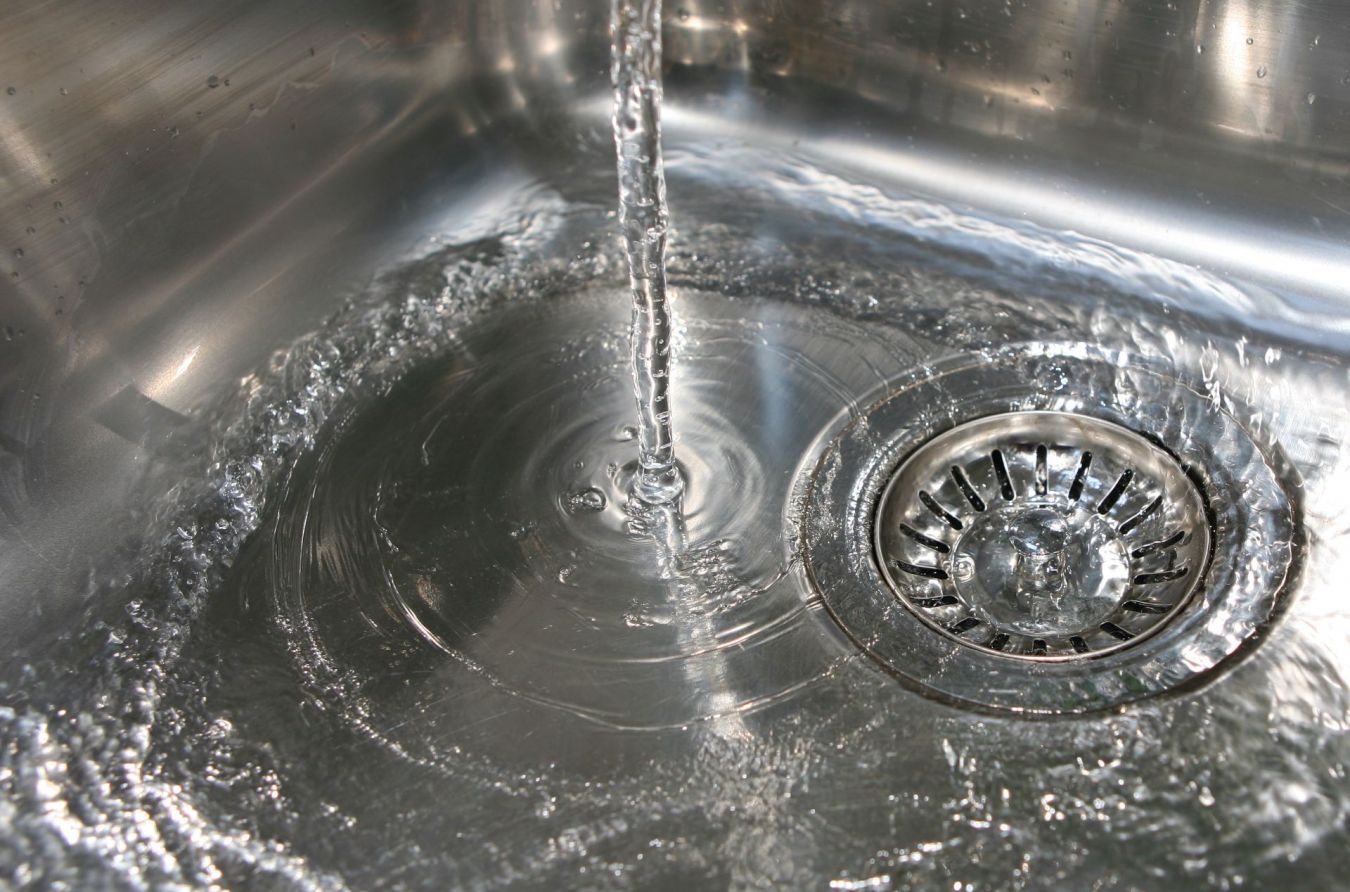
UK Drainage Habits Survey 2025
Friday 12th September, 2025Now in its seventh year, Unblocktober has continued to shine a light on the way our daily choices affect the health of our sewers, seas and waterways. Far from fading, the conversation about our environmental impact has only become louder and more pressing, driven by visible pollution and more extreme weather across the UK.
To capture how attitudes and behaviours are evolving, Unblocktober commissioned a nationwide YouGov survey. A total of 2,025 adults from across the UK took part, offering insights into their awareness of fatbergs, their habits around waste disposal and their views on what needs to be done to protect our drainage systems.
The findings highlight where progress has been made, where habits are still slow to change and what the public expects from campaigns, government and businesses in tackling the issue…
Key findings
- 92% of respondents are concerned about pollution entering our environment
- 70% have heard of fatbergs, 73% are very aware of what should and shouldn't go down the toilet and sink, and 59% have not poured fat or oil down the sink
- 65% would support the government introducing more extensive household cooking oil and grease recycling schemes, and 25% would support extra taxes on products that are harmful to the environment and drains
- The main barrier to changing behaviour is an “out of sight, out of mind” attitude, cited by 34% of respondents, while 11% said they have no viable alternative for disposing of products
- 29% said cooking oil is the hardest product to dispose of responsibly
- 65% support household oil recycling schemes and 55% want more drain health education in schools
- Nearly one in three (30%) would stop buying from a brand found to cause drain pollution, while 32% would prefer products from brands signed up to a drain protection pledge
- 38% believe Unblocktober should lobby for changes to environmental legislation
Are people aware of fatbergs and the causes of drain blockages?
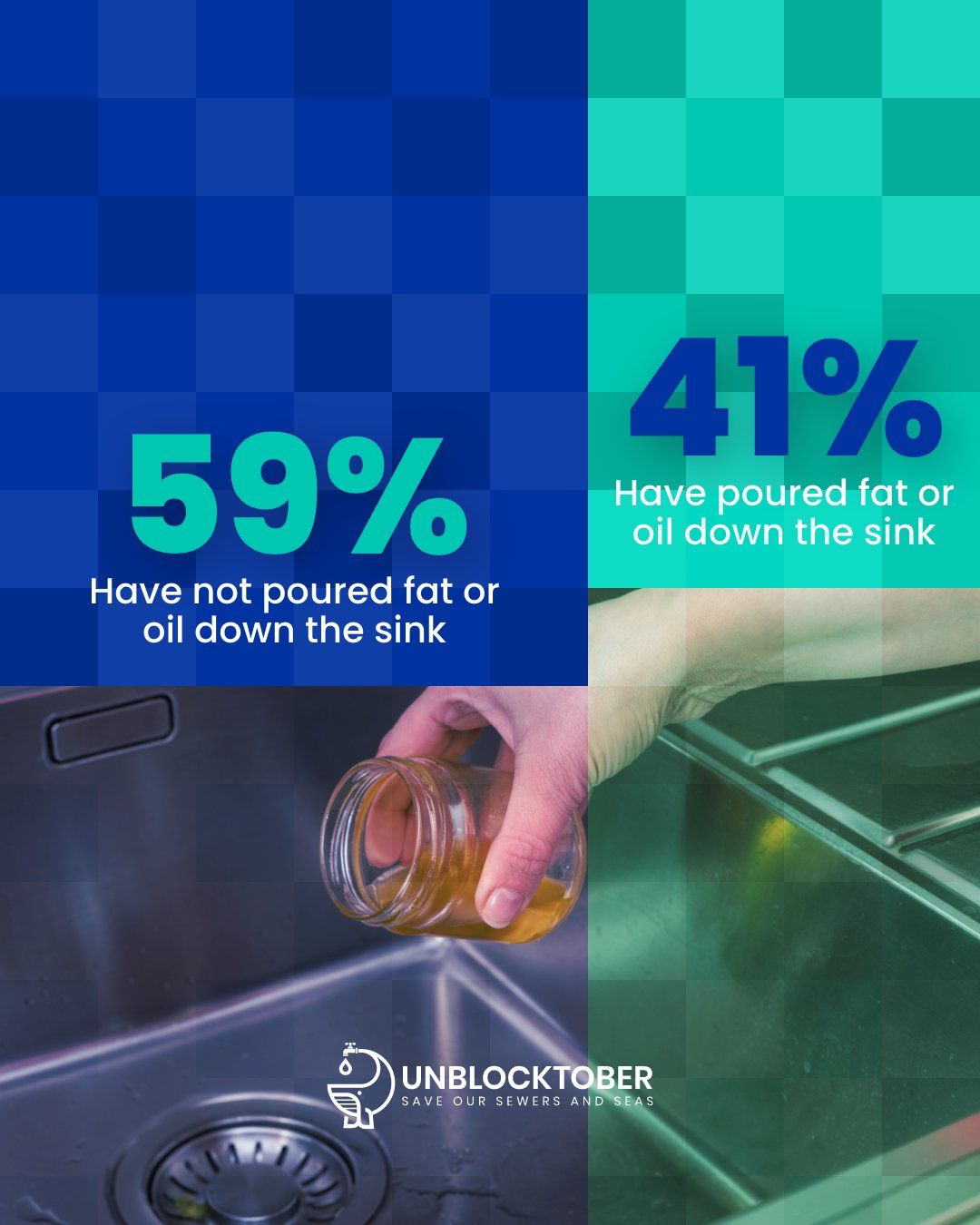
This year’s results show that most of the people we surveyed are very aware of fatbergs and cautious about their habits - although levels of concern and understanding may vary by age group:
- 70% of respondents say they have heard of fatbergs
- 59% say they have never poured fat or oil down the sink
- 73% describe themselves as very aware of what should and shouldn't go down the toilet and sink
- 92% of respondents are at least somewhat concerned about pollution entering our environment, with 53% saying they are very concerned or extremely concerned. 75% of respondents are also very or somewhat worried about the environmental damage caused by putting the wrong items down the toilet and drain
- People are willing to vote with their wallets on these principles. When asked what they would do if a brand they regularly buy from was responsible for significant drain pollution:
- 30% would stop purchasing their products altogether
- 17% would purchase their products less frequently
- 24% would switch to a competitor with stronger environmental credentials
- However, it appears that older people may be more educated about this; 18-24 year olds were shown to be far less likely to have heard of fatbergs, whilst those aged 55 and above were the most educated. Older respondents are also less likely to have poured oil or fat down their kitchen sink in the last 12 months
Do people understand the causes and impact of fatbergs?
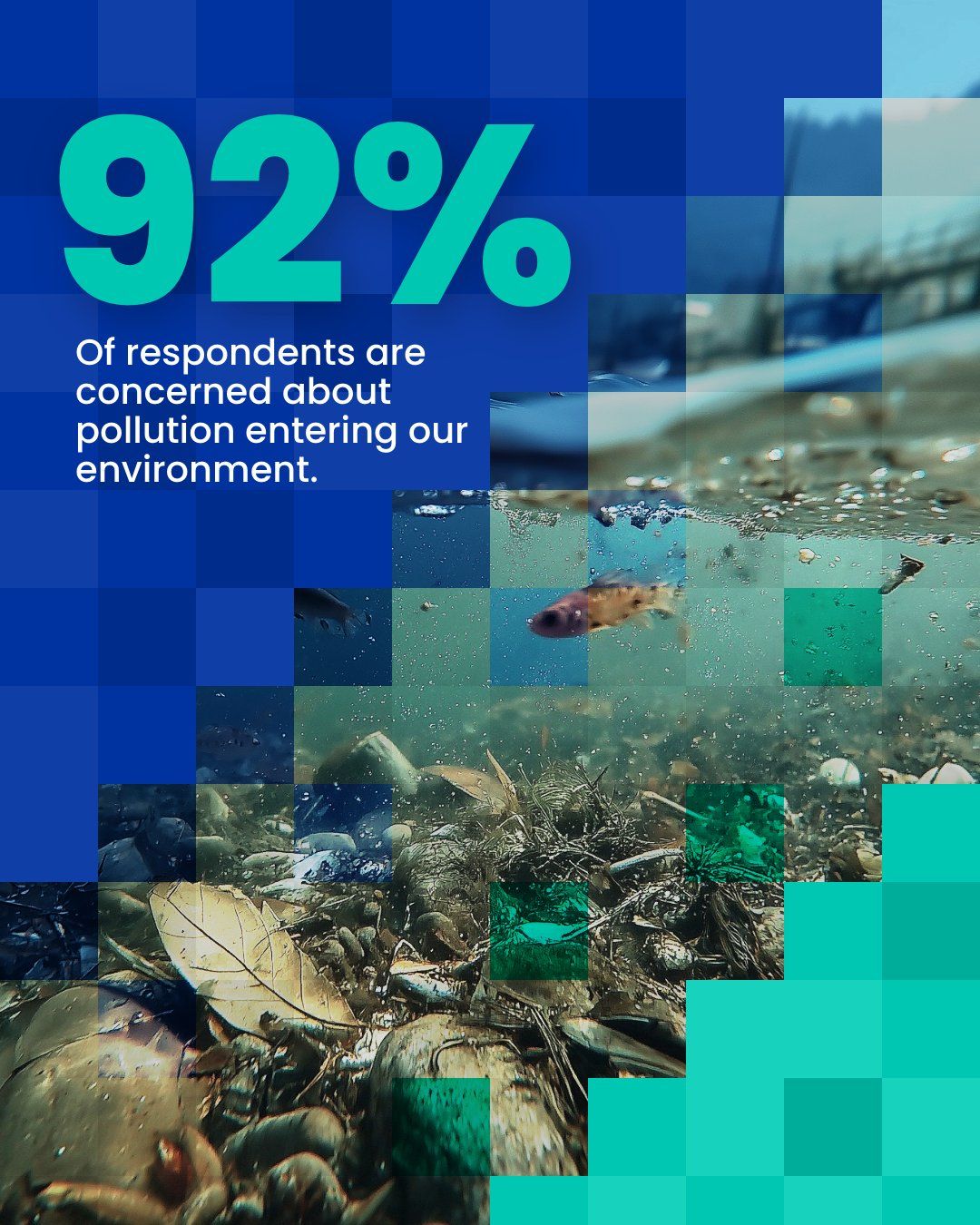
The results also showed strong awareness of what causes fatbergs and the problems they create, with most people able to identify the major contributors and consequences - although some factors were less well-recognised than others:
- “What do you think contributes to fatbergs?”
- FOG from cooking: 86%
- Wet wipes: 62%
- Sanitary towels: 53%
- Nappies: 50%
- Tampons: 48%
- Condoms: 41%
- Cotton buds: 39%
- Sanitary towels packaging: 38%
- Tampon applicators or packaging: 37%
- Cooking sauces: 36%
- Kitchen roll: 33%
- Face masks: 31%
- Condom wrappers: 29%
- Food crumbs: 20%
- Contact lenses: 17%
- Razor blades: 14%
- Medication: 13%
- “What problems do you think fatbergs can cause?”
- Blocked sewers: 86%
- Blocked drains in local communities: 81%
- Blocked drains in homes: 78%
- Foul waste flooding: 68%
- Water pollution: 56%
- Damage to buildings: 32%
- Damage to roads: 32%
- Plastic pollution: 29%
What is preventing change?
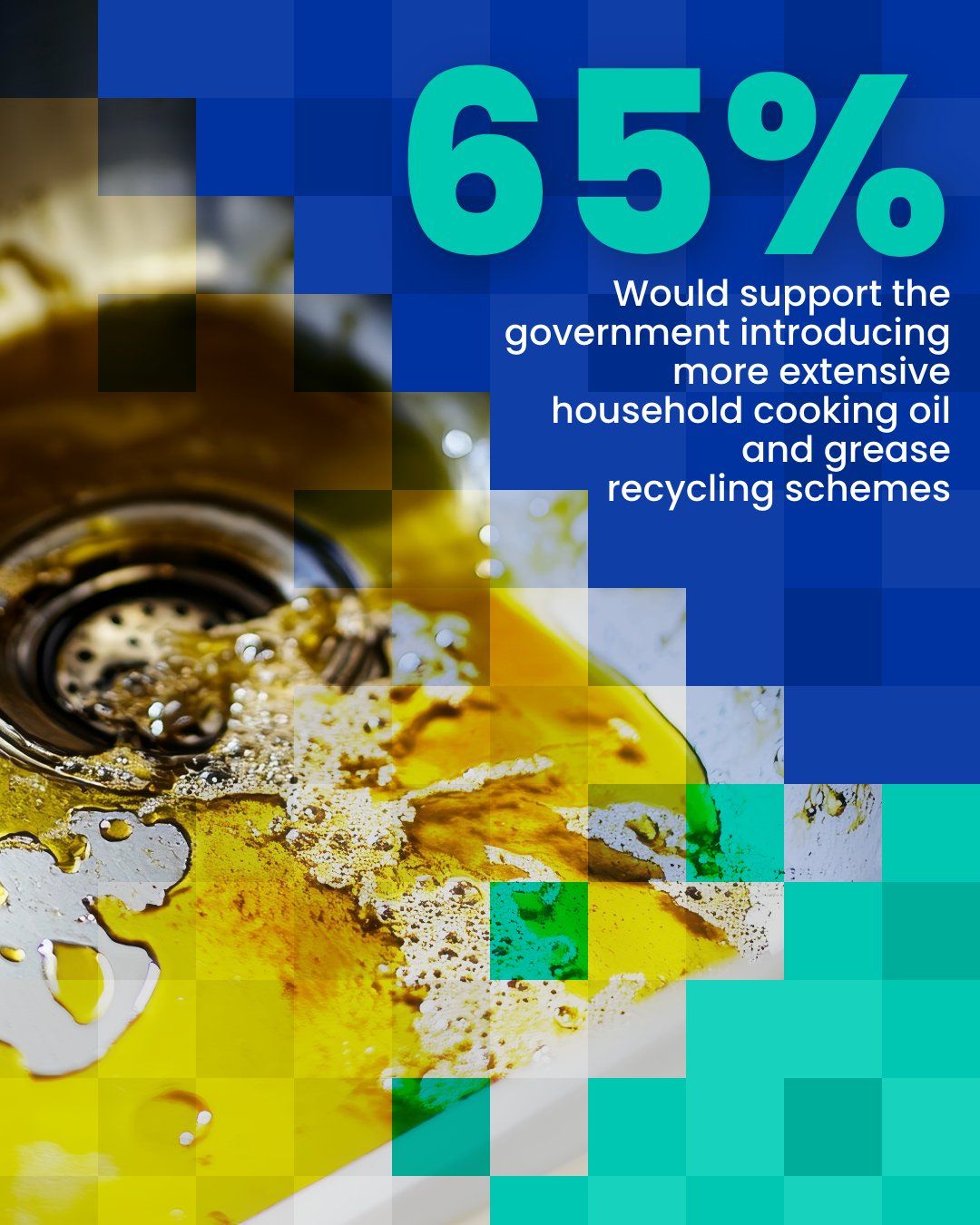
Despite good levels of awareness, several factors continue to hold people back from changing their behaviours around drain health:
- “What do you think is the main barrier to changing behaviour from people who contribute to fatbergs and pollution in our waterways?”
- An ‘out of sight, out of mind’ attitude: 34%
- A lack of education: 20%
- Laziness: 19%
- No viable alternatives to dispose of products: 11%
- No clear incentive to change: 9%
- When asked what items people find hardest to dispose of responsibly, 29% said cooking oil, suggesting some simply do not know how to dispose of these substances responsibly
- 18% of people admit they think about drainage habits far less in the workplace, suggesting that awareness and action are not consistent across different environments
- Does greater knowledge always lead to changes in behaviour?
Although the results show an encouraging awareness of good drainage practices, some of the other data indicates that this does not always translate into positive action:
- 3% of respondents say they pour fats or oils down the sink on average at least once a week, with 15% saying they’ve done it within the last 12 months
- 63% of respondents who claimed to be very aware of what should and shouldn't go down the toilet or sink still poured oil and fat down their kitchen sink at some point in the last 12 months
- Respondents who have poured oil and fat down their kitchen sink in the last 12 months are more likely to cite an “out of sight, out of mind” attitude as the main barrier to changing behaviours
What needs to be done?
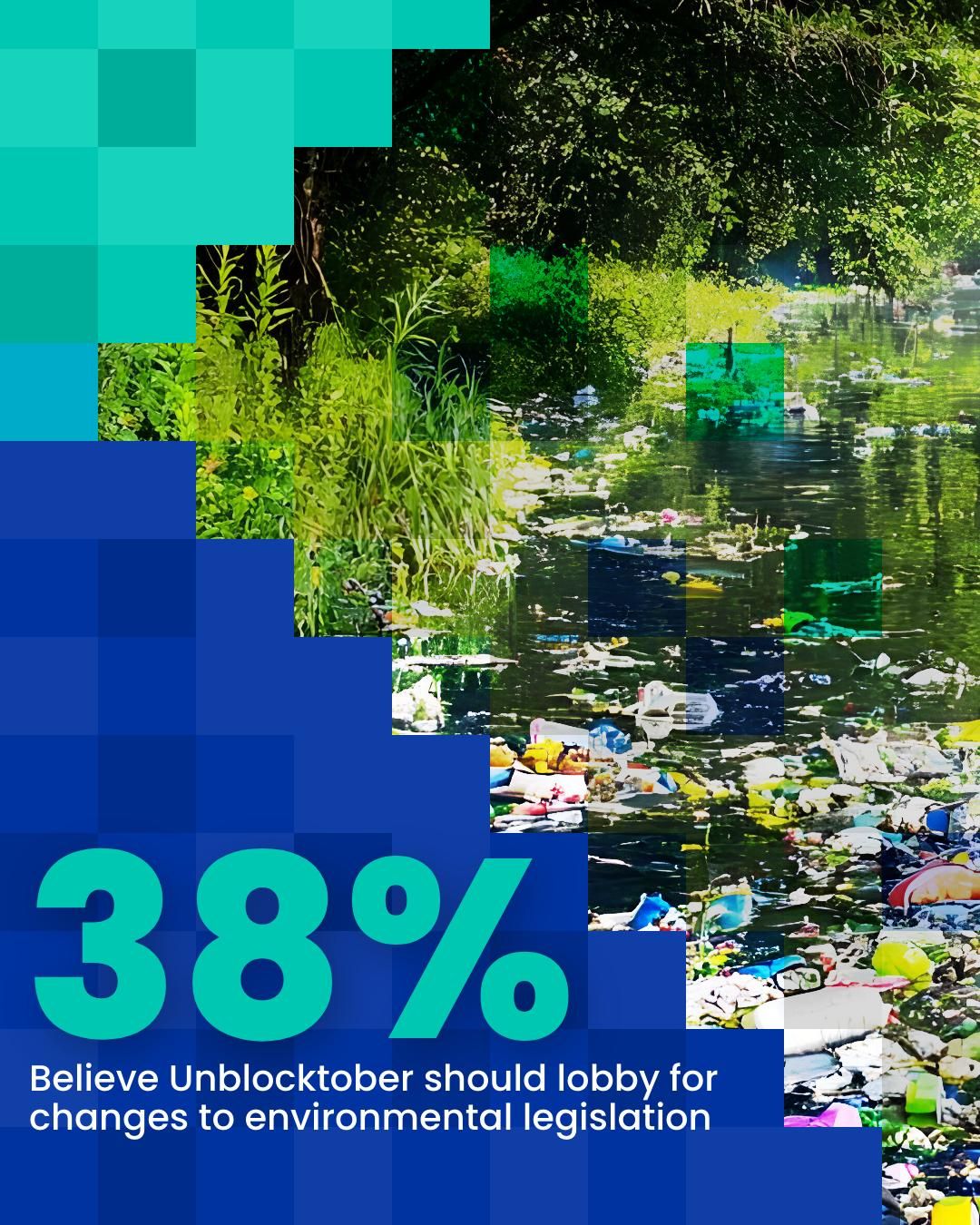
Finally, our survey revealed some insightful findings from the public in terms of how the government - and campaigns like Unblocktober - can help to drive progress more effectively:
- 45% feel that at present, environmental advocacy campaigns like ours are making a positive impact - but are not achieving their goals quickly enough
- To help deliver the best possible impact, the public feels that Unblocktober should focus on the following:
- Education of the public to help them change their habits: 82%
- Putting pressure on retail businesses to only stock drain-healthy products: 48%
- Lobbying for changes to environmental legislation: 38%
- Public initiatives such as beach cleans: 37%
- Lobbying for extra government support to help small businesses comply with healthy drainage practices: 31%
- We also asked which government initiatives our respondents would support to help improve drain health:
- A more extensive household cooking oil and grease recycling scheme: 65%
- Educational initiatives in schools and universities about drain health: 55%
- An education programme for new homeowners on drain maintenance: 47%
- Requiring all workplaces to take the Unblocktober pledge and dispose of waste properly: 37%
- Extra taxes on products harmful to drains and the environment: 25%
- A full nationwide ban on wet wipes: 18%
- A similar national ban on cotton buds: 12%
- Most people are looking online for information on drain protection and proper disposal methods, with 51% saying they seek this information through online sources, compared to 24% who consult product packaging and 14% who rely on local councils or authorities for information
- When asked if they would be more willing to buy products from brands that have signed up to a drain protection pledge, 32% said “definitely”, while 42% said “possibly”
If you wish to use any of the data from our survey for editorial purposes, please credit Lanes Group at www.lanesgroup.com, and the Unblocktober campaign at www.unblocktober.org.
Help the Unblocktober cause
You can make a difference to the health of our drains, sewers and seas by taking the Unblocktober pledge. Join thousands of households and businesses across the UK, and commit to small everyday changes that protect our environment!

